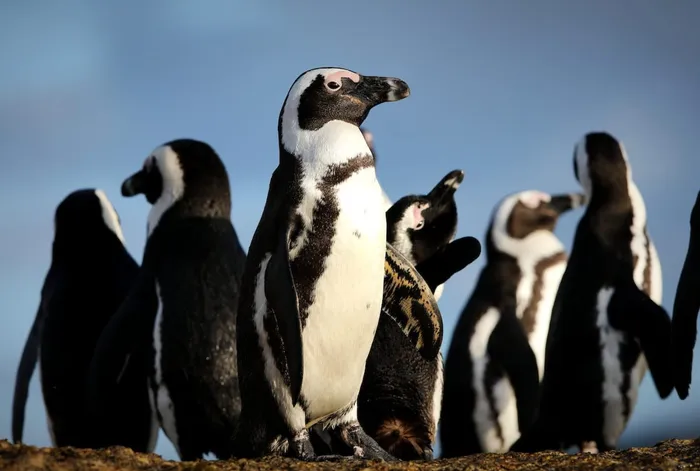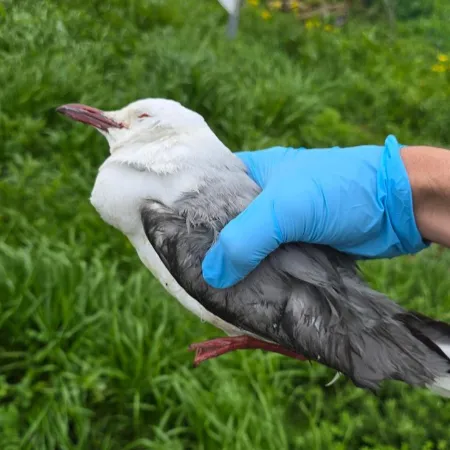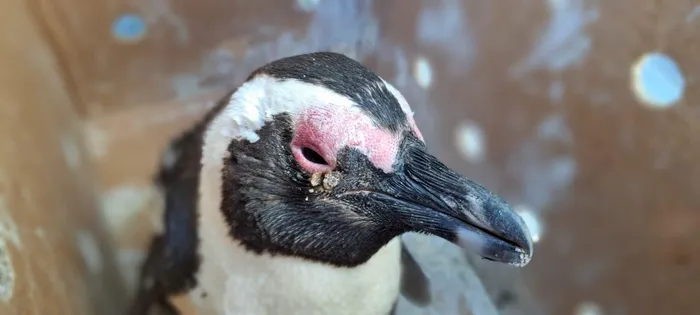Concern over impact of Avian Influenza outbreak on Critically Endangered African Penguin

Several cases of HPAI were confirmed in African Penguins, highlighting the serious risk that the virus poses to already threatened seabird populations.
Image: SANCCOB
The Southern African Foundation for the Conservation of Coastal Birds (SANCCOB) has reinforced its biosecurity protocols in response to the ongoing Highly Pathogenic Avian Influenza (HPAI) outbreak affecting wild seabirds along South Africa’s coastline.
HPAI, also known as bird flu, is a viral disease that causes rapid, severe illness in birds. The type of HPAI affecting seabirds in South Africa is officially known as H5N1 clade 2.3.4.4b.
Since early July 2025, a new outbreak of HPAI has been confirmed in wild seabirds across the Western Cape. These are the first wild‐bird detections in the province since April 2024.

Since early July 2025, a new outbreak of HPAI has been confirmed in wild seabirds across the Western Cape. These are the first wild‐bird detections in the province since April 2024.
Image: SANCCOB/Supplied
Wild seabirds infected with HPAI often develop neurological signs such as tremors, head twitches and seizures. Although HPAI occasionally infects mammals and humans, the risk to the public remains very low when basic precautions are followed.
At the beginning of August 2025, most of the affected wild birds were Hartlaub’s gulls.
Cases have also been reported in Great White Pelicans, Grey-headed Gulls, Kelp gulls, White-breasted cormorants, Crowned Cormorants and Sacred Ibises. Domestic chickens and ducks have also been affected.
SANCCOB spokesperson Kyle Johannes said their priorities have been to keep their seabird hospitals safe from infection, supporting conservation authorities with wild responder efforts, monitoring the impact on wild birds, and ensuring good animal welfare.
“Our actions include surveillance, working with State Veterinary Services and conservation authorities to monitor and manage the disease, advising on response procedures, educating rehabilitation centres, veterinarians, and first responders, and arranging humane euthanasia for birds showing clinical signs.
“Additionally, SANCCOB actively engages the public through media outreach and education on how to report sick and dead birds safely, to help map the outbreak in real time,” Johannes said.

Recently, several cases of HPAI were confirmed in African Penguins.
Image: SANCCOB/Supplied
“Recently, several cases of HPAI were confirmed in African Penguins, highlighting the serious risk that the virus poses to already threatened seabird populations.
“The Critically Endangered African Penguin, in particular, faces immense pressure from multiple threats, and the spread of HPAI adds to the urgency of conservation efforts aimed at preventing its extinction,” he said.
He said that there have been over 1000 suspected HPAI cases since June.
“These are cases that have actually been reported; the number of deaths is probably higher.”
He added that SANCCOB’s Cape Town and Gqeberha seabird rehabilitation centres remain operational, with strict biosecurity measures in place to reduce the risk of the disease affecting the birds in their care.
These measures include:
- Quarantine and HPAI testing for all incoming seabirds,
- Strict disinfection and sanitation protocols,
- Controlled movement of staff, volunteers, and visitors.
- Through proactive monitoring, strict biosecurity, and collaboration with partner organisations, SANCCOB remains dedicated to protecting seabirds and supporting national efforts to limit the impact of HPAI on South Africa’s coastal wildlife.
Members of the public are encouraged not to touch sick or dead birds and to report them to authorities. Sightings of sick or dead seabirds should be reported to SANCCOB’s 24-hour Seabird Rescue Line – 021 557 6155 or 078 638 3731 (Cape Town) or 041 583 1830 (Gqeberha).
The Department of Forestry, Fisheries and the Environment (DFFE) said they would respond to a request for comment on Tuesday.
Cape Times
Related Topics: